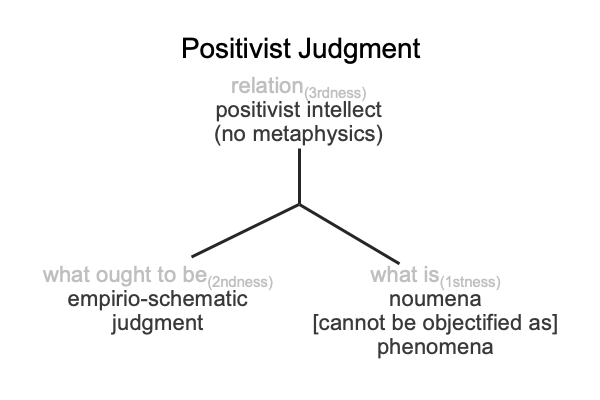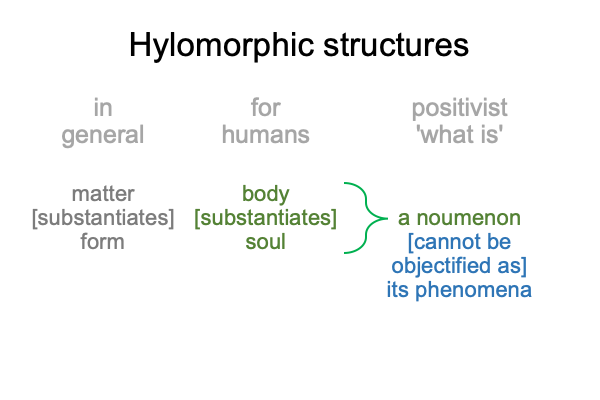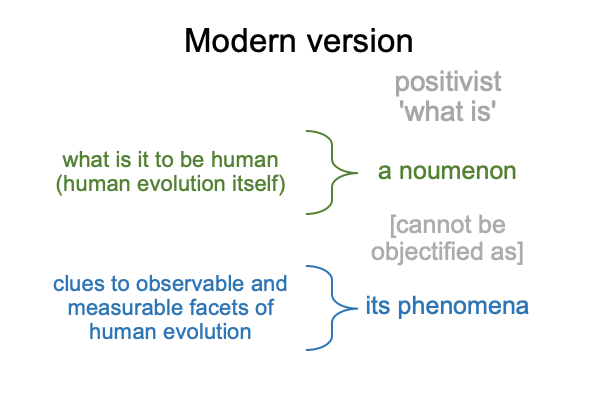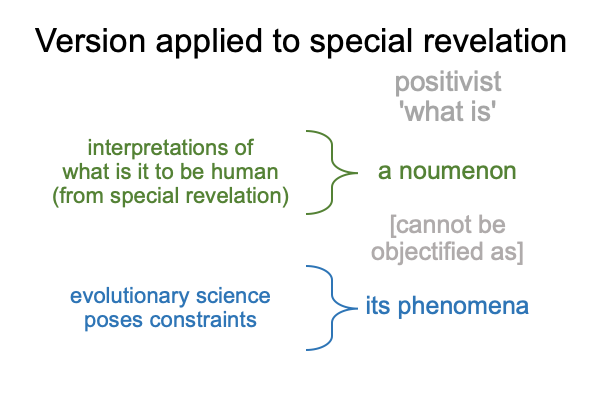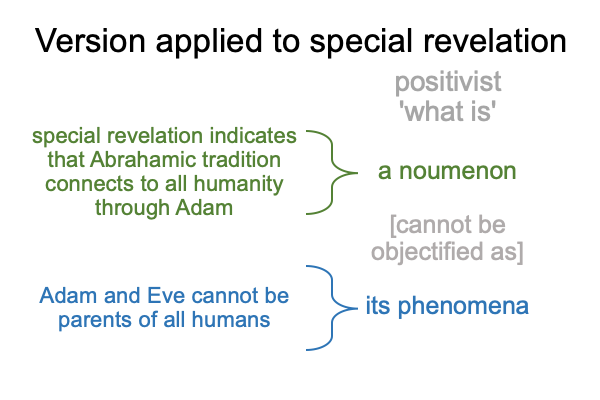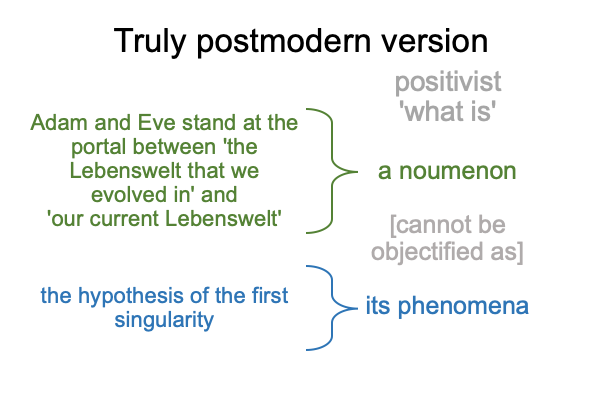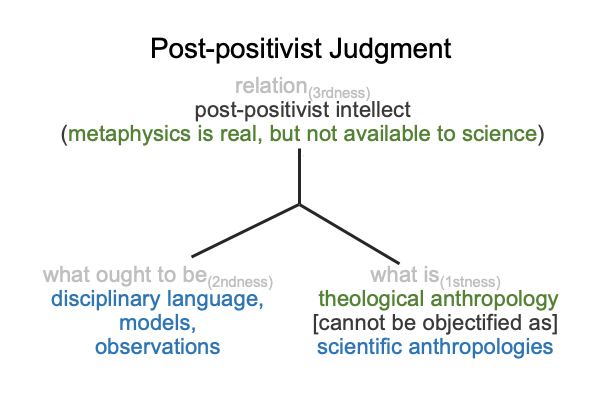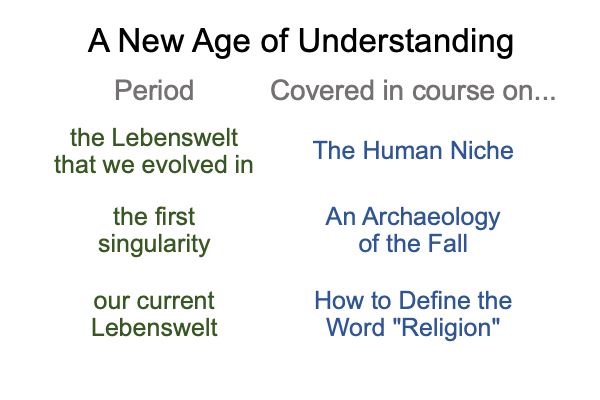Looking at Chris Sinha’s Essay (2018) “Praxis, Symbol and Language” (Part 4 of 5)
0012 Sinha’s EcoEvoDevoSocio framework associates to all the terms in the title of Chris Sinha’s Essay.
0013 Eco-Socio are bookends describing the long arc of time from the emergence of the Homo genus to the appearance of Homo sapiens. At the start, signification primarily comes from the ecology. At the end, significations primarily come from social interactions.
0014 EvoDevo are the twin tomes of phylogenesis and ontogenesis, bringing me to the truth-bearing fiction within Sinha’s narrative.
What is this fiction?
Ontogeny recapitulates phylogeny.
0015 Biologists have debunked this slogan, as fact. But, it lives on as fiction.
Why?
It must be true, even though it is factually incorrect.
0016 How else can one draw a thread through these two terms: language and the human brain?
Language goes with phylogenesis. As discussed in the masterwork, The Human Niche, plus its attendant commentaries, the biological capacity for language evolves in the milieu of hand talk. Hand talk develops phylogenetically, from signaling, to functional representation, to symbolic communication, then to fully linguistic. The adaptation of language occurs within the evolution of hand talk.
The human brain goes with ontogenesis. The capacity to read ecological significations expands to reading intentional manual-brachial gestures. Intentional gestures retain their semiotic qualities as icons and indexes as they become more conventional, habitual, lawful and so on. They become more and more like symbols. The neural substrate in the hominin brain finds a way to process symbols.
0017 Ecological significations are icons and indexes.
Intentional manual-brachial gestures are perceived as icons and indexes, even though they increasingly operate as symbols.
0018 So, instead of the slogan, “ontogeny recapitulates phylogeny”, we can adopt the saying, “ontogeny intersects phylogeny”.
A traffic intersection belongs to both roads. So does the intersection of ontogeny and phylogeny.

